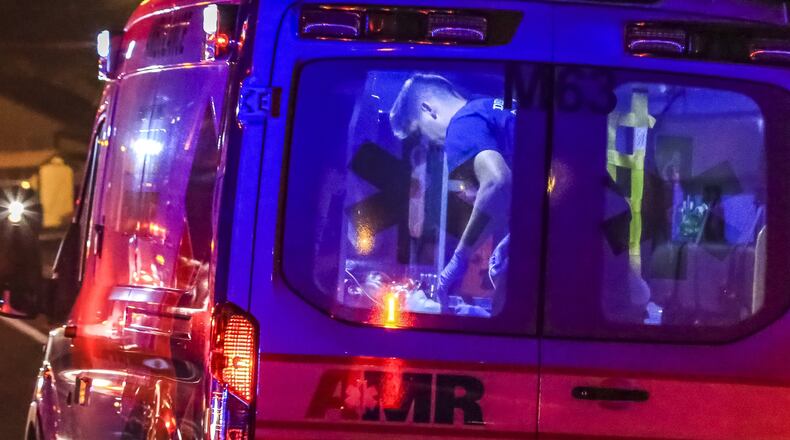DeKalb County’s often-criticized ambulance service provider, American Medical Response, says it is ready to compete for the chance to continue serving patients another five years.
The county announced Wednesday that it has begun the process of soliciting proposals to rebid its ambulance-services contract. The new agreement is worth millions of dollars in fees paid by patients or their insurers for emergency transportation to the hospital.
There could be one or more providers. The request for proposals said DeKalb could select one company or divide up the contract based on geographical areas. Other companies with similar contracts in the region include Grady EMS, which has agreements with Fulton County and the city of Atlanta, and MetroAtlanta Ambulance Service, which operates in Cobb County.
DeKalb set an April 12 deadline for proposals, which will be evaluated based on costs passed on to patients, proposed staffing levels, a company’s experience and financial stability. Providers also must agree to minimum response times, such as arriving to least 90 percent of high-priority calls within 11 minutes and 59 seconds. They could face financial penalties for failing to meet standards outlined in the contract.
“The new proposal will improve patient care and countywide ambulance response times,” DeKalb CEO Michael Thurmond said in a news release. “The RFP also gives municipal leaders within DeKalb County the flexibility to enhance levels of service by creating designated service areas within their jurisdictions.”
Thurmond has said that the 2013 agreement with AMR, signed before he took office in 2017, was inadequate. It should have distinguished between life-threatening calls and more routine ones and did not outline penalties if the company failed to meet industry standards for high-priority incidents, Thurmond said.
AMR has faced years of complaints about slow response times, ambulances that never showed up and even a patient being assaulted.
Last year, the city of Dunwoody threatened to withdraw from DeKalb's agreement with AMR because of concerns about ambulances that were slow to arrive and the incident where an EMT punched a teenage patient. In the end, Dunwoody and DeKalb signed a memo that held AMR to new response-time standards and improved staffing levels.
In December, AMR and DeKalb officials signed off on a six-month contract extension that closely mirrored the Dunwoody memo but also required patients needing an ambulance to pay more. Under the contract extension effective on Jan. 1, AMR is allowed to charge patients $1,725 for the most serious calls, known as Advanced Life Support. Basic Life Support calls now cost $1,453 each. Both those amounts are roughly double what the 2013 contract allowed. For each mile patients ride in an ambulance, they are charged $29.50, a 181-percent increase from the old fee of $10.50 a mile.
Terence Ramotar, AMR’s regional director, said in a statement Wednesday, “From what we’ve seen, it appears that the RFP has recognized some key issues that needed to be addressed given the tremendous population growth since the last contract was put in place. We greatly value our collaboration with DeKalb County, and we are hopeful to continue working together to deliver a world-class EMS system for the residents of DeKalb County.”
The county says that calls for EMS service had risen from 95,680 in 2015 to 100,051 in 2018, a 4.6 percent increase. There were 74,063 people taken to the hospital 2017, an average of 203 a day.
Facing criticism about lagging response times, AMR officials complained that it was hard to improve service given the caps on fees outlined in the 2013 contract. They said rising population and more traffic in DeKalb were also to blame.
Dunwoody Mayor Denny Shortal is already expressing concern about the RFP, which sets standards below what AMR agreed upon in last year's memo.
For example, the agreement set a 9-minute standard for high-priority calls, three minutes less than the RFP requires. And the procurement document says that the lowest-priority calls should receive a response within 30 minutes. Dunwoody’s memo sets that standard at 15 minutes, or half the time.
Those standards will remain in place even after a new ambulance service contract is finalized.
About the Author
Keep Reading
The Latest
Featured




